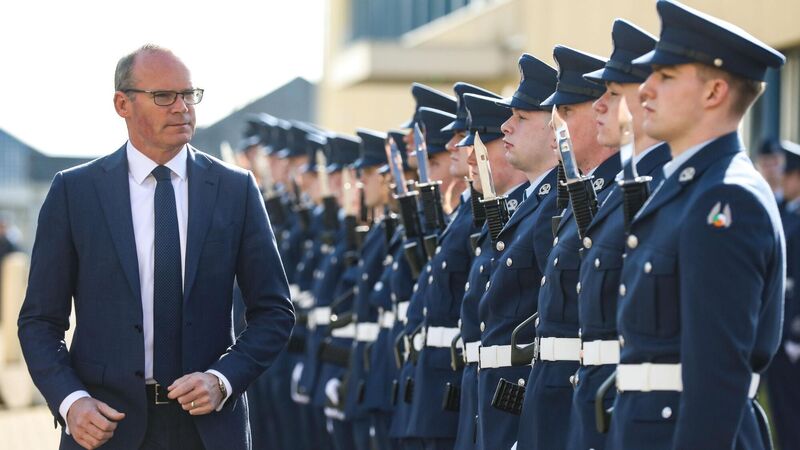Russian war highlights need to boost Defence Forces' spend, says Coveney

Defence Minister Simon Coveney inspects the guard of honour during the 100th anniversary of the Irish air corps at Casement Aerodrome, Baldonnel, Co Dublin. Picture: Leah Farrell / RollingNews.ie
Foreign Affairs Minister Simon Coveney has said the Russian invasion of Ukraine is a “wake-up call” for the EU, and underlined the need for a “significant investment” in the Defence Forces.
Mr Coveney, who is also Minister of Defence, said he will be bringing an “action plan” to rebuild the country’s depleted armed forces to the Government in June.













